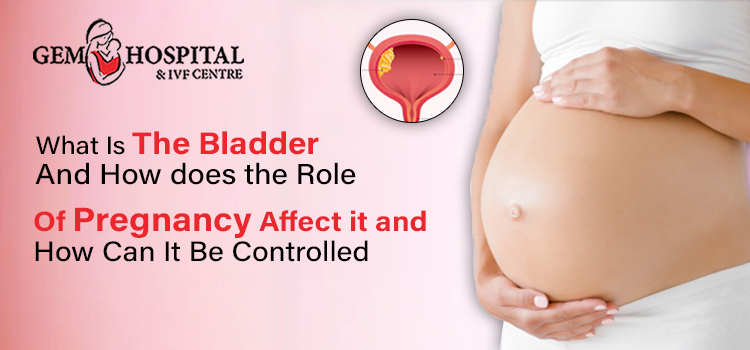What is a bladder, and does it get affected during pregnancy?
The bladder is an organ above the pelvic bone in the lower body, which is balloon-shaped and helps store urine made by kidneys and helps in shrinking after passing out the urine through the urethra and uterus. The sphincter muscle is present, which Keeps the bladder closed until you’re ready to urinate. This enables the bladder to work usually. The Nerves in the bladder also play a vital role as they signal to the brain that the bladder needs to get emptied.
During pregnancy, it is affected and causes incontinence. What is Urinary incontinence?
When you feel incontinence, you must urinate immediately and go to the toilet several times during the incontinence episodes. It is an ability to control the movement of urine.
Why does a pregnant woman face incontinence?
The main reason to feel Urinary incontinence is the stress of leaking urine in between the trip to the washroom while having incontinence. The uterus and bladder are located just beneath the uterus during the baby’s growth in the mother’s womb. As the baby grows and the bladder starts getting compressed and flattened, space to store urine decreases, which promotes incontinence and sometimes leads to urine leaks while going to the washroom.
Why do women face loss of bladder control after childbirth?
Here is the list of reasons which promote control loss over the bladder after giving birth.
- When the bladder moves out of the position, it is called Pelvic organ prolapse. It happens due to weakened muscles around the bladder, which is also called cystocele.
- Due to long vaginal delivery, pelvic nerves get damaged, which control the bladder, which is called Pelvic nerve damage.
- When forceps are needed during delivery which further causes damage to pelvic and sphincter muscles can also cause incontinence after the child’s birth.
- The pushing force during the vaginal delivery may damage pelvic nerves and increase the chances of losing control over the bladder after childbirth.
How is the condition of bladder control loss diagnosed?
To diagnose the problem with the bladder, doctors do some tests like
- Urinalysis In this test, you have to provide a urine sample; afterward, the sample will be analyzed, and the cause of incontinence will be examined.
- Ultrasound is performed to have clear Images of the bladder and make sure that your bladder is empty entirely while having an ultrasound.
- Bladder stress test, your health provider will check the signs of urine leakage and make you cough forcefully to know the incontinence condition.
- Cystoscopy is a test in which a thin tube with a miniature camera at one end is inserted into your urethra, and health providers look inside your bladder and urethra during this test.
- Urodynamics is performed to measure the pressure inside the bladder. In which s thin tube is inserted into your bladder during this test. Water flows through this tube to fill the bladder so pressure can be measured.
What are the types of treatments suggested by a doctor?
Mainly these conditions recover after childbirth and can be controlled by leaving caffeinated drinks and limiting fluid intake. Must include foods high in fiber to avoid constipation. Maintain your weight, as excessive weight can put pressure on the bladder. If you still have episodes of incontinence, then keep a record of this in a diary.
As any issue related to the urinary tract or system is treated by a person who is well qualified and experienced to treat and diagnose the problem during pregnancy caused by the bladder, they are also seen by best urologist to treat the situation with precision and perfection.
A doctor diagnoses the problem and examines and treats someone’s ailment. Especially during pregnancy, a doctor plays an essential role because pregnancy has several effects on the bladder and other organs in the urinary system, which the best urologist properly treats. You can easily find a doctor to get treated in any other city.



